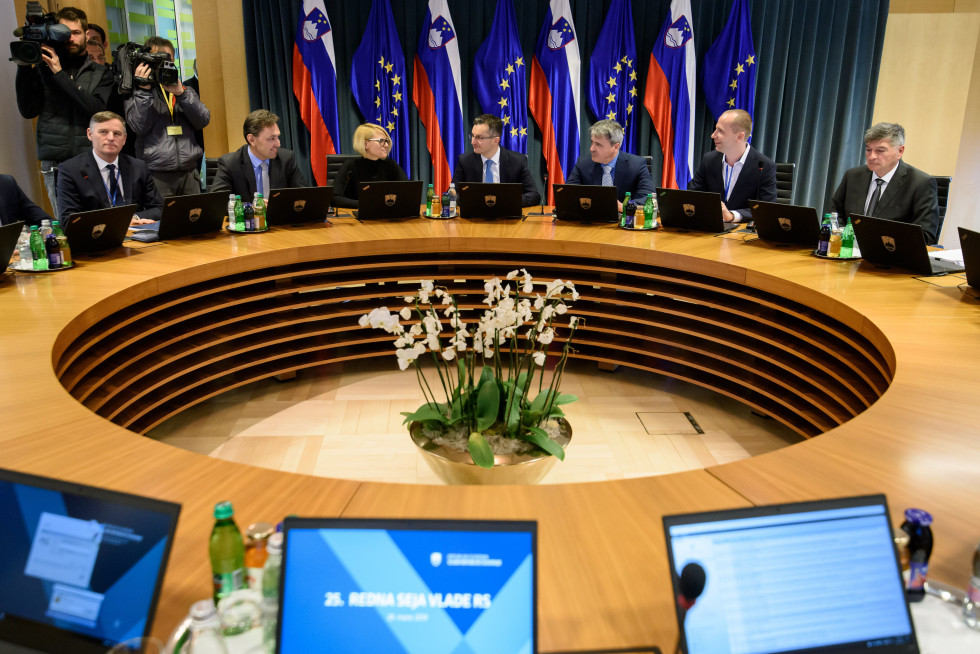53rd ordinary session of the Government of the Republic of Slovenia
At today’s session the government adopted the Cultural Heritage Strategy 2020-23, and instructed all ministries and government departments to draw up an action plan for 2020 and 2021 in conjunction with the Ministry of Culture, setting a deadline of six months to do so. The basis of the strategy is the principle of the integrated conservation of heritage as a fundamental of national identity, Slovenia’s cultural diversity (which goes hand in hand with its exceptional landscape diversity and biodiversity), its attractiveness as a place to live, education, development, the arts, tourism and other economic activities. It provides a foundation for Slovenia’s contemporary creativity and its profile in the international community. The general objectives of the strategy are to use heritage to contribute to quality of life and to a better-integrated society, to promote sustainable development, and to improve society’s attitude towards its heritage.
The strategy applies the integrated conservation of heritage in three societal subsystems: society (in its narrower sense), development and knowledge. The purpose of the strategy is promoting and supporting the role of heritage in achieving general strategic objectives, such as an inclusive society, smart development, and the continual transfer of knowledge. The main challenge for the strategy is generating synergy between existing sectoral objectives, guidelines and measures in areas important to heritage conservation, and improving or enhancing them where necessary.
The government also adopted a Plan of Investment in Transport and Transport Infrastructure 2020-25, and was briefed on the sustainable mobility action plan for the wider Ljubljana urban area. The investment plan adopted today sets out the projected investment needed to realise the objectives set out in the Resolution on the national programme of transport development and in the Transport Development Strategy to 2030. The timetable of investments in air transport, water transport, national roads (new and renovated), toll roads (new and renovated), railway modernisation, and the introduction of measures in the area of sustainable mobility and traffic management envisages budget and non-budget expenditure in the amount of approximately EUR 653 million in 2020, EUR 718 million in 2021, EUR 1,098.5 million in 2022, EUR 992.5 million in 2023, EUR 997.5 million in 2024 and EUR 1,150 million in 2025.
Further investment of EUR 431.9 million in 2020, EUR 438 million in 2021, EUR 453 million in 2022, EUR 443.5 million in 2023, EUR 441.7 million in 2024 and EUR 423 million in 2025 is projected for regular road and railway maintenance, and for subsidising public passenger transport services. These amounts include budget funding and other resources.
The government also adopted a National Strategy for Prevention of Terrorism and Violent Extremism. The strategy is based on the position that Slovenia strictly condemns any form of terrorism or violent extremism, irrespective of its type and form, and irrespective of religious, ethnic or any other ideological motivation. Terrorism undermines fundamental values such as human dignity, freedom, democracy, equality, the rule of law, and respect for human rights and fundamental freedoms, and hurts the economy, sustainable development and national security. There can be no apology for terrorism.
The purpose of the strategy is setting out measures and systemic responses to reduce Slovenia’s vulnerability to terrorism and violent extremism, and to ensure security against terrorist threats in order to protect its constitutional, economic, social and political foundations, its fundamental values, and the security of residents and citizens of Slovenia at home and abroad. The strategy is highly focused on prevention, and targets the most vulnerable groups.


